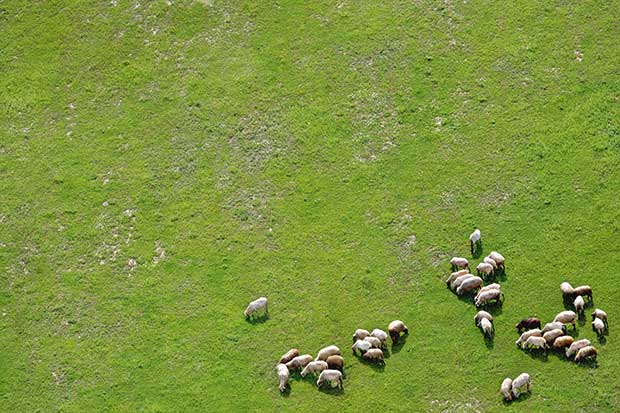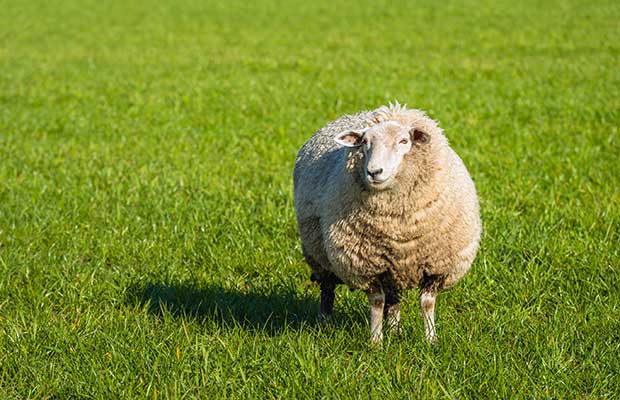7 tips for hard feeding ewes during pregnancy (and what to do if she’s not eating enough)

A good diet is important in the final stages of a ewe’s pregnancy.
Words: Nadene Hall
In the final 4-6 weeks of pregnancy, ewes need good feed to keep up energy levels. If grass is short you need to add supplements to their diet, such as good quality hay, silage, multi-nuts and/or grain.
Low grass means a lowered protein intake, so look for feed that has high protein (16-17%). Grain feeds are not a complete diet and can cause acidosis. They are fed in addition to pasture, not in place of it, to avoid this.
Adding chopped-up straw to grain will encourage animals to chew it well. This stimulates saliva, which helps to keep the rumen from producing too much acid.
1. Always introduce a supplement slowly (50g per sheep per day) and build up to recommended levels (usually 150-200g per day) over 7-10 days.
2. Use troughs to feed concentrates with plenty of space so all get a fair share and there is no waste.
3. Whole barley and oats are best crushed.
4. Don’t supplement purely with wheat as it is not a complete feed.
5. Have a salt lick and molasses lick available at all times.
6. Have plenty of fresh, clean water available at all times.
7. Livestock on supplements can be affected by a magnesium/calcium deficiency – talk to your vet clinic or rural supply store about the best product for your ewes.
WHAT HAPPENS WHEN A PREGNANT EWE DOESN’T EAT ENOUGH
Ewes carrying multiple lambs will be at risk of developing pregnancy toxemia (sleepy sickness, ketosis). This tends to happen in the last month of pregnancy – especially the last two weeks – and in the days after birth.

The animal can’t eat enough to supply energy for herself and growing lambs. Her rumen may also be smaller due to a lack of room, so she will start to use her own reserve tissues.
Symptoms include:
• depression
• dull eyes
• loss of appetite
• teeth grinding
• slow moving or not getting up
• muscle spasms and weakness
• sweet-smelling breath
• limping or walking tenderly
• blindness
• eventual death
To prevent it, feed high-quality supplements, with high protein levels (16-17%).
Have a suitable treatment on standby at the time, as the earlier the treatment, the higher the chance of success. Talk to your vet about the best preventative treatments.
A vet can administer intravenous glucose treatments which will be taken up quickly. If you are concerned, call your vet immediately as time is of the essence.
MORE HERE:
Could the reason your sheep and cattle look underweight be ill-thrift?
Love this story? Subscribe now!
 This article first appeared in NZ Lifestyle Block Magazine.
This article first appeared in NZ Lifestyle Block Magazine.
